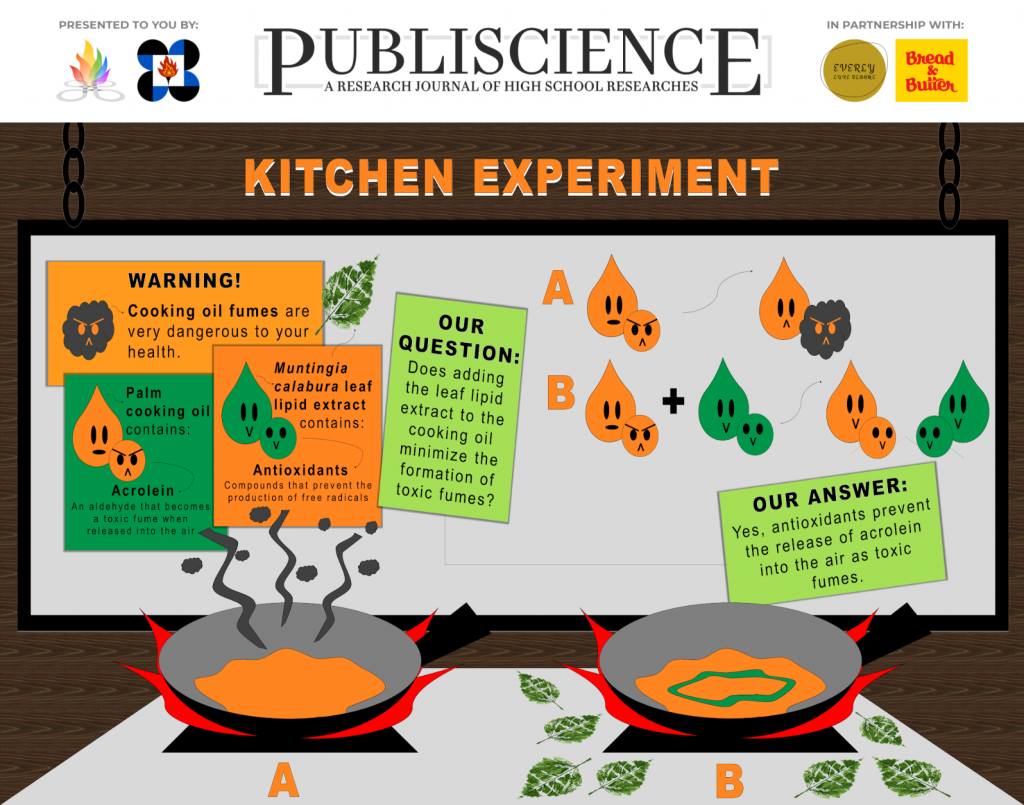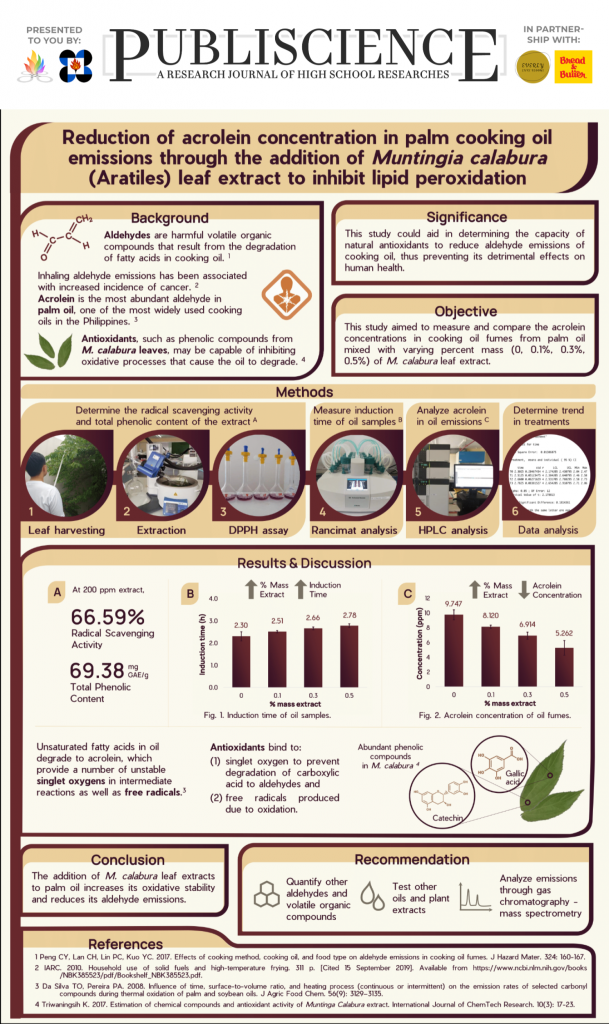Reduction of acrolein concentrations in palm cooking oil emissions through the addition of Muntingia calabura (Aratiles) leaf extract to inhibit lipid peroxidation
AMOS NATHAN B. TUANGCO1, FRANCINE T. TARRAZONA1, MARIA ZYKA J. YAMOG1, ARIS C. LARRODER1, and JADE G. PAHILA2
1Philippine Science High School Western Visayas Campus – Department of Science and Technology (DOST-PSHSWVC), Brgy. Bito-on, Jaro, Iloilo City 5000, Philippines
2Food Science Laboratory, Regional Research Center, University of the Philippines Visayas, Miagao, Iloilo, Philippines
Abstract
Inhaling acrolein, an aldehyde present in cooking oil fumes, is detrimental to human health. Fatty acids in oils can undergo the degradation process of oxidation, which produces acrolein and other volatile aldehydes. To prevent such degradation, plant-based antioxidants could be added to the oil. This study aimed to measure and compare acrolein concentrations in emissions of palm oil with varying concentrations (w/w) of Muntingia calabura ethanol leaf extract. Four set-ups were subjected to volatilization and dissolution through Rancimat analysis. Volatile oxidation products from the Rancimat were analyzed for acrolein through high-performance liquid chromatography. Results showed that acrolein concentrations decreased as the concentration of the leaf extract in the oil treatment increased. Thus, the addition of M. calabura leaf extract to palm oil has the potential of controlling oxidation during cooking by reducing acrolein emissions; safer kinds of cooking oil could be formulated with the preference of incorporating natural antioxidants.
Keywords: cooking oil fumes, acrolein, natural antioxidants, induction time, oxidative stability

